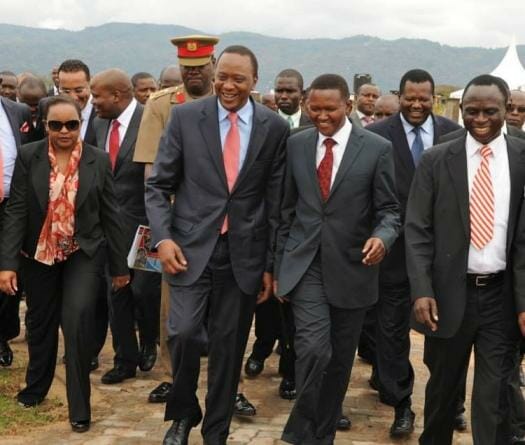Only one percent of Kenyan government spending can be properly accounted for, according to a report by the country’s auditor-general released just days after US President Barack Obama warned corruption was holding the country back.
Auditor-General Edward Ouko’s annual report, presented to parliament on Tuesday, said that just 1.2 percent of Kenya’s one trillion shilling (8.9 billion euro) budget for 2013-14 “was incurred lawfully and in an effective way”.
The 361-page report is a litany of mismanagement, incompetence, wastage, misspending and possible corruption on a huge scale.
Ouko found that 60 percent of government spending — roughly 600 billion shillings (5.3 billion euros) — “had issues” while he “was unable to confirm” whether a further 390 billion shillings (3.5 billion euros) “was incurred effectively and lawfully”.
The report was published two days after Obama left Kenya where he had addressed “the cancer of corruption”, calling endemic graft “the single biggest impediment to Kenya growing even faster”.
“Too often, here in Kenya corruption is tolerated because that’s how things have always been done. People just think that that is sort of the normal state of affairs,” said Obama.
The auditor-general’s report exposes the everyday nature of malpractice and possible corruption in Kenya’s government.
The ministry of health and ministry of transport and infrastructure were among 17 government departments singled out for failing to provide documents to support spending totalling 67 billion shillings (600 million euros).
“These public funds may not have been utilised lawfully and in an effective manner,” said Ouko.
Former transport minister Michael Kamau, was among four ministers suspended in March, and has been charged with abuse of office.
Ten government departments — including the ministry of agriculture and the judiciary — failed to pay bills totalling 17 billion shillings (147 million euros).
Kenya’s police — regularly ranked among the most corrupt institutions in East Africa — spent 31 million shillings (274,000 euros) on rent for offices that were left empty. In some police stations officers were accused of stealing cash bails, sometimes using fake accounting books to conceal the theft.
Kenya, which is placed 145th out of 174 on Transparency International’s annual corruption index, has long been blighted by graft.
It became a byword for corruption in the 1990s and 2000s with multi-billion dollar fiddles including Goldenberg, which saw the government overpay gold subsidies, and the Anglo-Leasing government procurement scandal.
Graft allegations have dogged a deal to build a new 485 kilometre (300 mile) standard gauge railway that is currently under construction linking the port of Mombasa with the capital Nairobi.
The Chinese-built single-track railway line with diesel rolling stock, is costing $5.6 million per kilometre compared to the $4.8 million per kilometre being paid by neighbouring Ethiopia for a new dual-track, electrified railway. A parliamentary committee has called for the cancellation of the deal, amid suspicions of corruption.
In Kenya public office is often seen as a route to personal enrichment, as Obama noted while standing alongside President Uhuru Kenyatta at a news conference in Nairobi on Saturday.
“People aren’t stupid,” the US president said.
“If they see an elected official and they know that their salary is there, and suddenly they’re driving through town in a very big car, and they see their cousin driving through town with a very big car, and they’re suddenly building a new house, and all that doesn’t seem to match up with their salary, they don’t have to be a forensic accountant to know what’s going on,” he said.
Kenya’s presidency, however, was among just five government ministries, departments and agencies in which no mismanagement was identified.
For the latest on national news, politics, sport, entertainment and more follow us on Twitter and like our Facebook page.
– AFP


















































